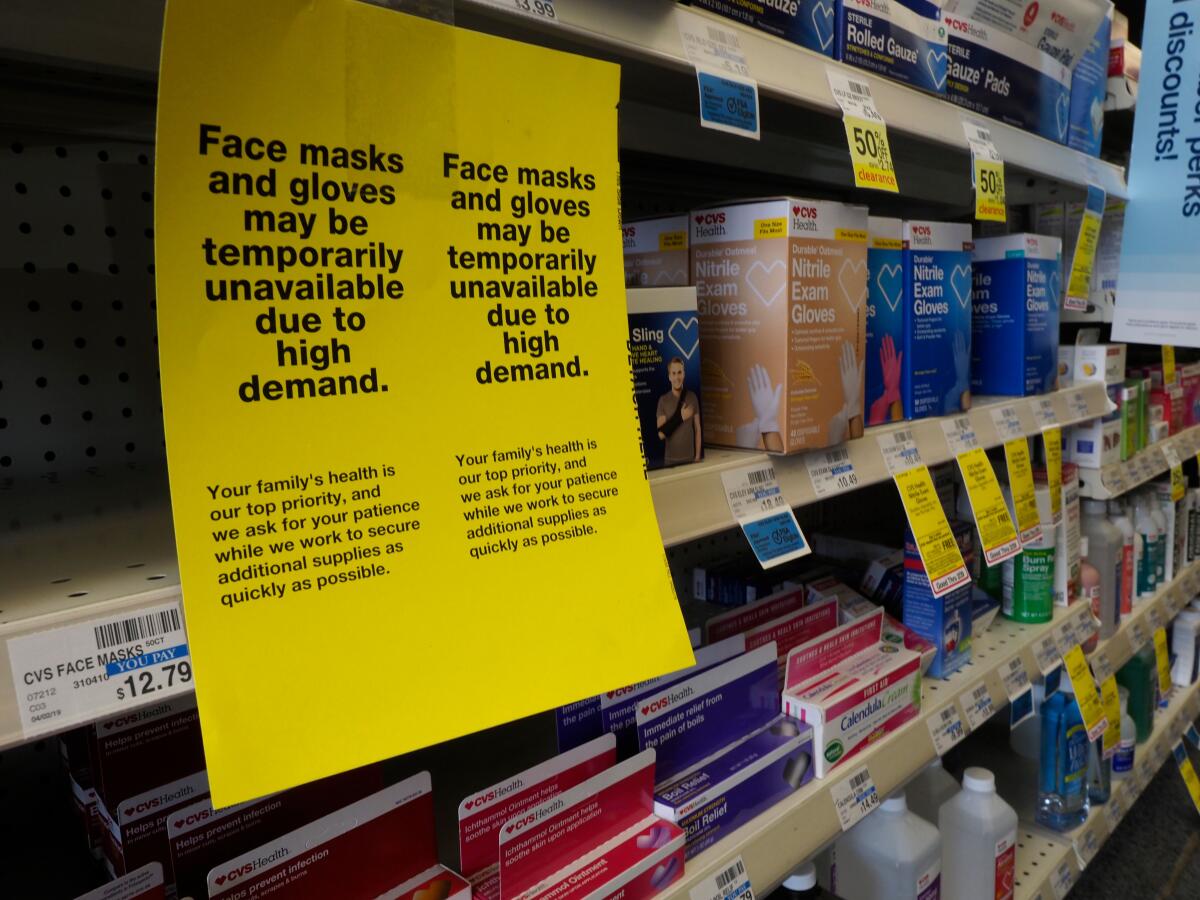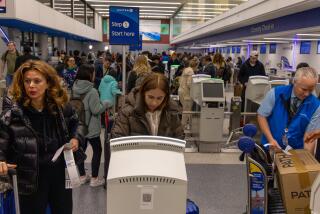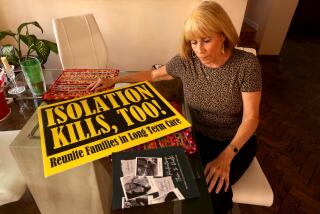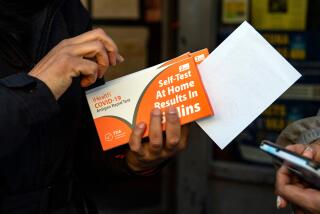Did government missteps worsen California’s coronavirus danger? Here’s what we know

- Share via
As California officials race to identify people who might have come into contact with a woman who contracted coronavirus in Solano County, there are growing questions about whether government missteps might have made the problems worse.
They involve issues of virus testing as well as how the federal government handled the quarantining at two California bases of people coming from China.
A total of 33 people have been diagnosed with coronavirus in California, and five have since left the state. Of the confirmed cases, 24 were either evacuated from the Diamond Princess cruise ship or returned on repatriation flights from Wuhan, China, which is where the coronavirus outbreak began. Gov. Gavin Newsom said more than 8,400 people are being monitored in 49 local jurisdictions.
Here is what we know:
Testing in Northern California
At the center of concern now is a woman who is believed to be this country’s first novel coronavirus patient who did not recently travel outside the country or come in contact with someone who did.
The Solano County woman was hospitalized more than a week ago but was not tested for several days because she did not fit screening criteria set by the Centers for Disease Control and Prevention, which include both symptoms of the virus and either a recent history of travel to China or close contact with another coronavirus patient.
Before she was transferred to UC Davis, the woman was hospitalized for three days at NorthBay VacaValley Hospital in Vacaville, Aimee Brewer, president of Northbay Healthcare Group, said in a statement.
She was taken by ambulance to the UC Davis facility in Sacramento once her condition worsened, Brewer said.
“As for the patient’s care in NorthBay VacaValley Hospital, at no time did the patient fit the existing CDC criteria for COVID-19, and therefore a test was not immediately administered,” she said.
The delay in testing has heightened concerns from critics about how the testing is going.
California Sen. Dianne Feinstein on Thursday called on the White House to start rapid testing of all suspected cases, saying the identification of coronavirus patients quickly is essential to limiting the spread.
Newsom said California needs more test kits. The state has 200 kits for both diagnostic and surveillance purposes, but federal officials say more will arrive in the coming days, he said.
Some experts say rapid testing is essential to curtaining the spread of coronavirus.
“When you miss cases, you can’t isolate them, test their families or get a hold on this before it keeps spreading,” said Jennifer Nuzzo, an epidemiology expert at the Johns Hopkins Center for Health Security.
California quarantine
Critics have also raised concerns that officials did not adequately train or provide necessary protective gear to health workers sent to assist Americans flown back from coronavirus hot zones in China and elsewhere last month and quarantined at Travis Air Force Base and March Air Reserve Base in California.
The accusations of improper safety protocols, including allowing the health workers to leave the bases, were outlined in a whistleblower complaint from an unidentified official in the Health and Human Services Department.
In a statement, the department said it was “evaluating the complaint.”
It’s unclear whether any workers contracted the virus. Nearly 200 Americans were quarantined at March for two weeks. They arrived at March Air Reserve Base on a chartered flight from China and, after all testing negative for the virus, were released Feb. 11.
The Times confirmed the outlines of the whistleblower complaint but has not directly reviewed it. According to the Washington Post, the whistleblower said that “appropriate steps were not taken to quarantine, monitor, or test [the workers] during their deployment and upon their return home.”
The workers, this person said, were “in contact with passengers in an airplane hangar where evacuees were received and on two other occasions: when they helped distribute keys for room assignments and hand out colored ribbons for identification purposes,” the Post reported.
Rep. Jimmy Gomez (D-Los Angeles) said his office was approached by the whistleblower and that he is concerned about the allegations.
“My office was recently approached by a federal whistleblower who’s deeply concerned about @HHSGov’s handling of the #coronavirusus. Members of this person’s team were deployed to assist Americans who were exposed to #COVID2019. They did so WITHOUT proper training & hazmat gear,” he said on Twitter.
More to Read
Sign up for Essential California
The most important California stories and recommendations in your inbox every morning.
You may occasionally receive promotional content from the Los Angeles Times.














